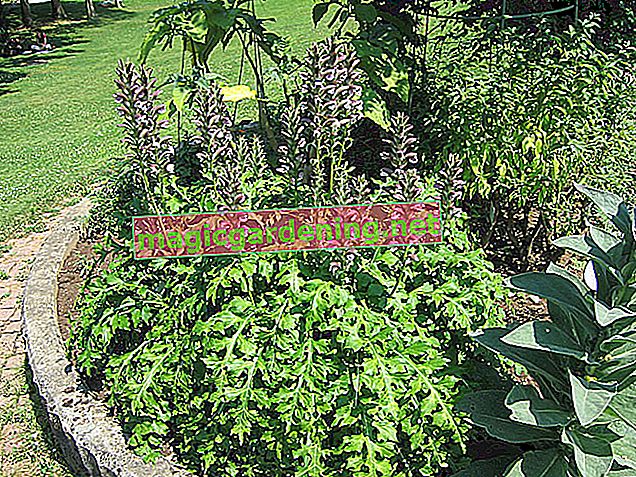
Acanthus mollis is not poisonous
The botanical taxonomy sometimes causes confusion when the scientific names are translated with German folk names. Acanthus mollis is a shining example. Records from the 16th century show that the Mediterranean wild perennial was referred to as a bear stage by the Middle High German vernacular. In the further course, the current name True Bear Claw, more rarely Soft Bear Claw or Soft Bear Claw, developed from this.
also read
- Is Acanthus Hungaricus Poisonous?
- Which hogweed species grow in Germany?
- Is every hogweed poisonous? - How to tell the difference
Native hogweed species, such as meadow hogweed or giant hogweed, come from the genus Heracleum, which sometimes contains poisonous species. Regardless of the verbal confusion, the all-clear regarding the toxicity of Acanthus mollis can be given. The plant does not pose any threats, such as the dangerous giant hogweed (Heracleum mantegazzianum).
True hogweed - the forgotten medicinal plant
In the distant past, Acanthus mollis was one of the officinal medicinal plants. This classification means that every pharmacy had to have the plant in stock. Presumably the remedy was available in different preparation forms for internal and external use. The list of traditional areas of application is long, as the following excerpt demonstrates:
- Effective for respiratory diseases such as coughs, colds and flu
- Relieves sprains, gout or bruises
- Helpful for wounds, burns or scalds
Tips
With its magnificent flower candles, true hogweed (Acanthus mollis) is the perfect candidate for the sunny perennial bed in a natural garden. A light protection from leaves and coniferous branches is enough for the imposing ornamental plant to survive the Central European winter unscathed.








